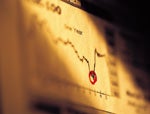Difficult questions abound in today's stock market. Are we in a new bull market or does the bear still roam? Have the broad economy and the business cycle rebounded, or are we in for further rounds of low growth? Questions like these are easy to ask, yet very hard to answer.
So is there any low-hanging fruit out there for an investor to find? Below are five of the most prominent secular trends from around the globe. What is a secular trend? Quite simply, it is a trend that has long-term causes, long-term effects, and can be depended on to be just as important in the future as today. The companies that lead in providing solutions to these trends should outperform the broad market over the next decade, as they have a neon-lit pathway to higher revenues and profits. Let's take a look at five secular trends that every investor should know. (Read more in Digging Deeper Into Bull And Bear Markets.)
1. The Baby Boomer Generation
The boomers represent the single most concentrated source of wealth in the history of mankind. Many of them are retiring (granted, some later than they may have wished), which means they will be tapping into their nest eggs. Many will travel or move to a new home. They will take up new hobbies and activities.
In short, boomers will be spenders rather than savers. They will be able to spend more on necessary healthcare than any generation before, and in their twilight years they will look to senior living centers that can provide a valuable social setting while getting closer access to important health care. Follow this powerful demographic – it's a bankable one for the next 20-30 years.
2.
When the most recognizable
Apple (Nasdaq: AAPL), Nokia (NYSE: NOK), Palm (Nasdaq: PALM) and Research in Motion (Nasdaq: RIMM) are all big players in the market for the devices themselves, but the secular trend also extends to the wireless carriers, and the makers of the "guts" of the device, such as semiconductors, touch screens and software applications. (To learn more, check out Dial up Choice Telecom Stocks.)
3. The Scarcity Trade - Peak Oil, and Peak ... Water?
We are somewhere near peak oil, that point when the world's drillers tell us that they're not finding any more meaningful stores of the black gold. When that day is upon us, chances are that crude oil will still be fueling the majority of the world's engines, automobiles and mechanical equipment. And from that day forward, it's a good bet that the price of oil and gasoline won't be heading down. Alternative green energy sources are making great inroads to solving this problem, but it will take decades for them to replace a meaningful chunk of global energy production. (For further reading, check out our special feature on Green Investing.)
Meanwhile, the most important scarce resource on earth is also the simplest in chemical structure – water. While the vast majority of the earth's surface is covered by it, only 2.5% of the world's water is fresh water, and the majority of that is locked up in the polar ice caps.
To about 20%, the world's ever-growing population, potable (drinking) water isn't even accessible. More than 75% of
4. Agriculture Products
To say that the world's population is on a permanent uptrend is no news flash. Neither is the fact that the world is consuming more food each and every day. But what kind of food they're eating is a secular trend in its own right.
In most developing nations, people are craving diversity in their diet, which has mostly consisted of grains and vegetables in the past. They want protein, and while they can get it, the growing of cattle, pigs and chickens means that more grains, rice and corn must be produced on our farmland to feed those animals. It takes about 16 pounds of grain to produce just one pound of beef.
The world's arable (farmable) land is shrinking as more people populate a planet that isn't getting any bigger. In addition, the soil in many developing markets can't produce rich crop yields due to insufficient nutrients. These trends have resulted in commodity food prices rising for decades, a trend that looks to continue. Companies that provide fertilizers, stronger seeds and farming equipment could greatly benefit from this secular trend in the coming decades.
5. Globalization & Emerging Market Infrastructure
By now you've probably heard of the BRIC acronym, identifying four super-fast growing economies. GDP growth in
More importantly, these nations have a growing number of college-educated professionals that can compete for jobs around the world. They have growing middle classes with personal incomes that can be spent on better living standards and consumer goods.
What will take these economies to the next level is the gradual rollout of a broad infrastructure. The main reason why
This secular trend is very fluid, and the companies who benefit the most is likely to change over time. Gain your clues from the
Parting Thoughts
Nobody can say for sure if the companies leading the charge today will be the ultimate beneficiaries of these secular trends. So your homework is to keep tabs on them yourself, to follow them in your own way. Identifying the winners is a ticket to solid investment returns and an excellent long-term strategy.


![[Most Recent Quotes from www.kitco.com]](http://www.kitconet.com/charts/metals/gold/t24_au_en_usoz_2.gif)
No comments:
Post a Comment